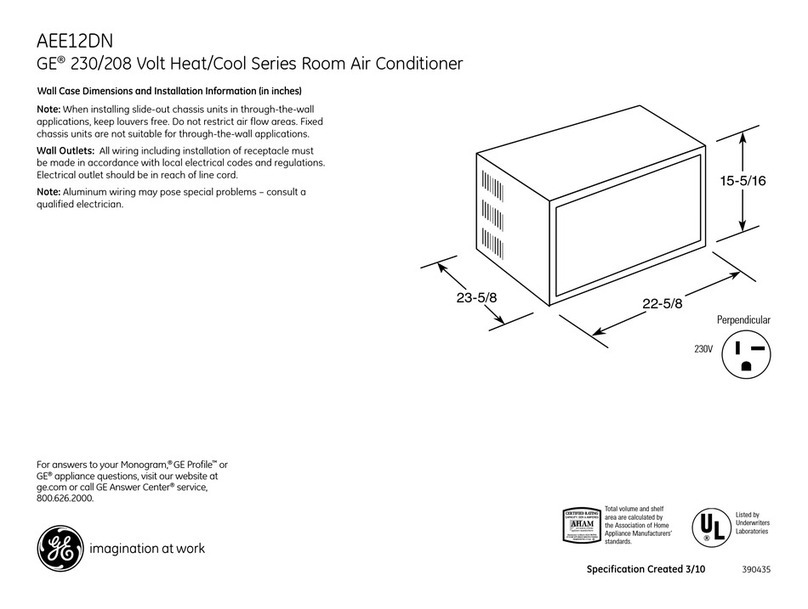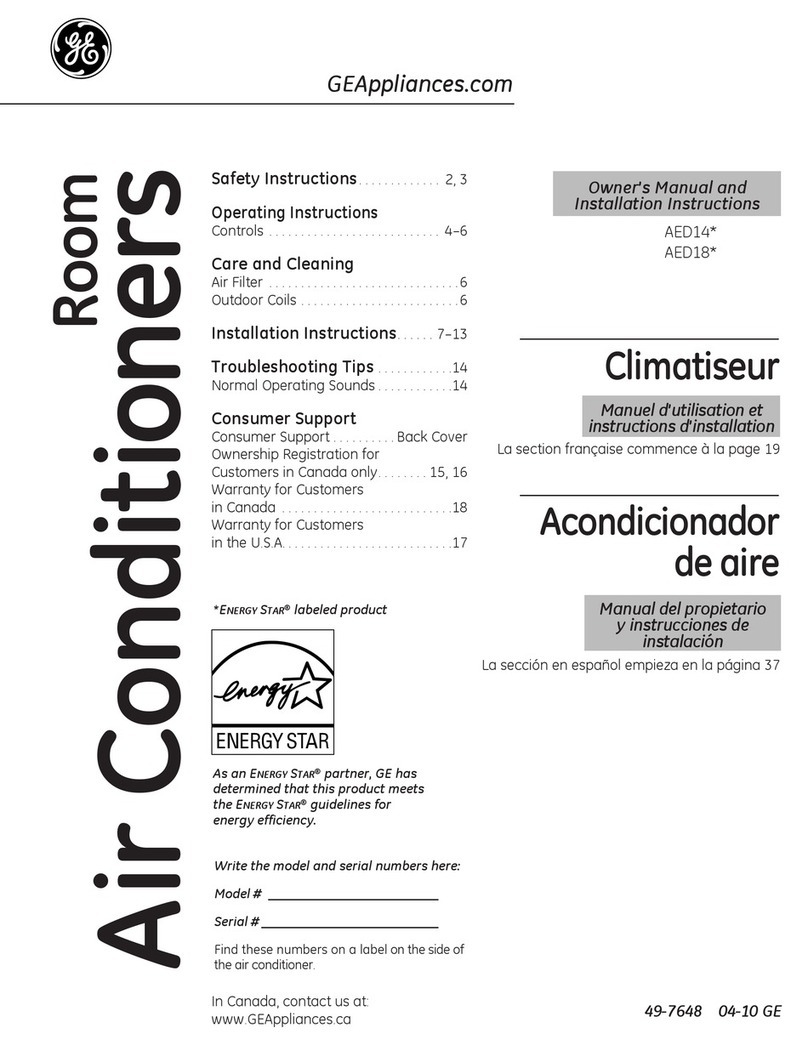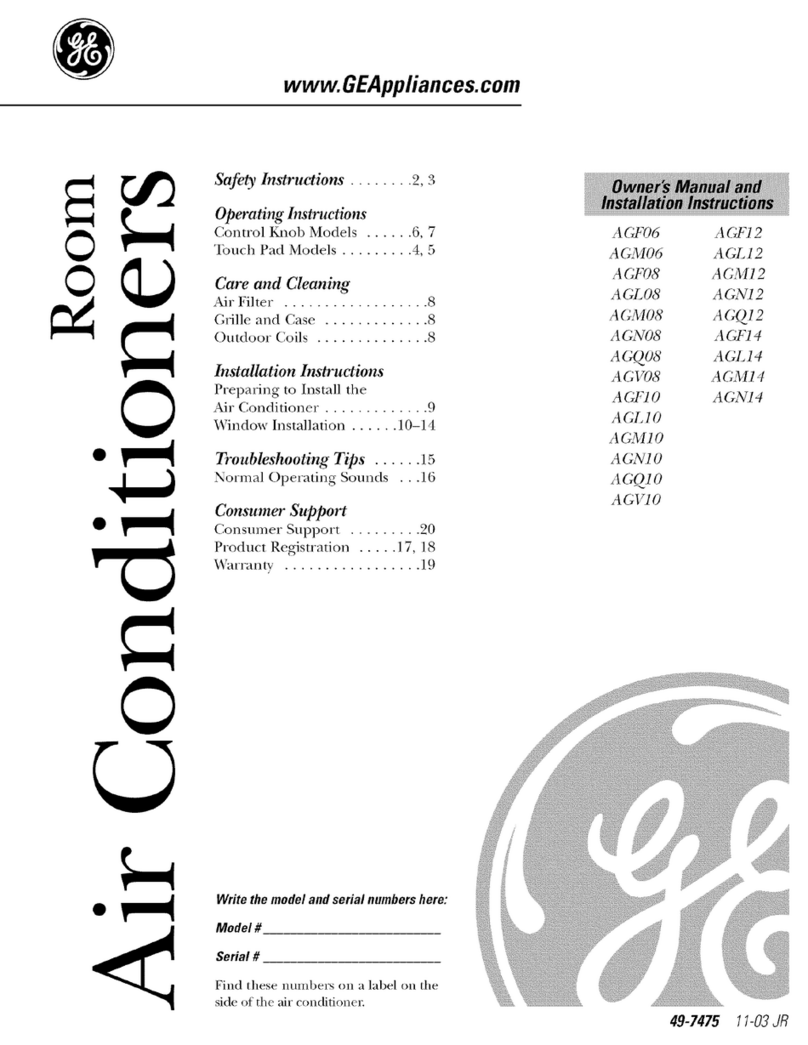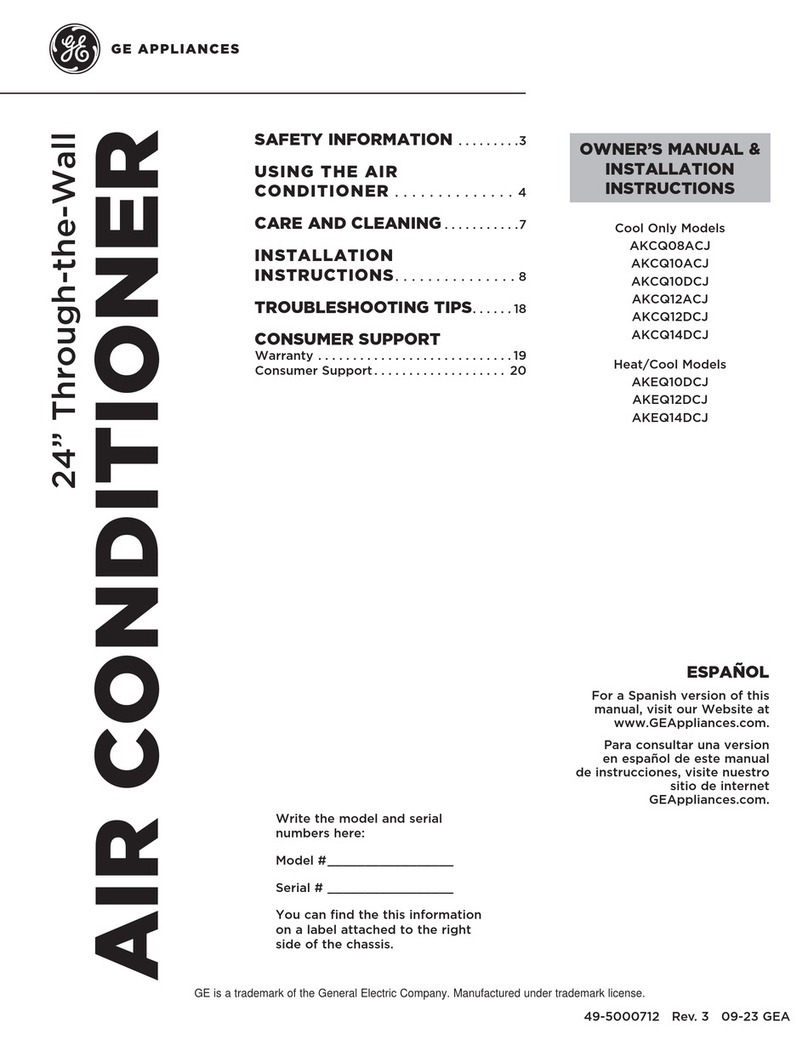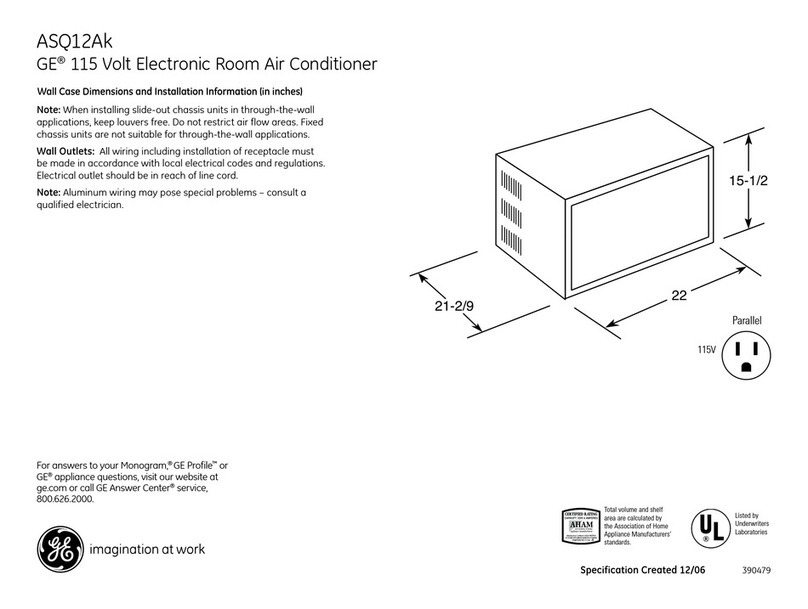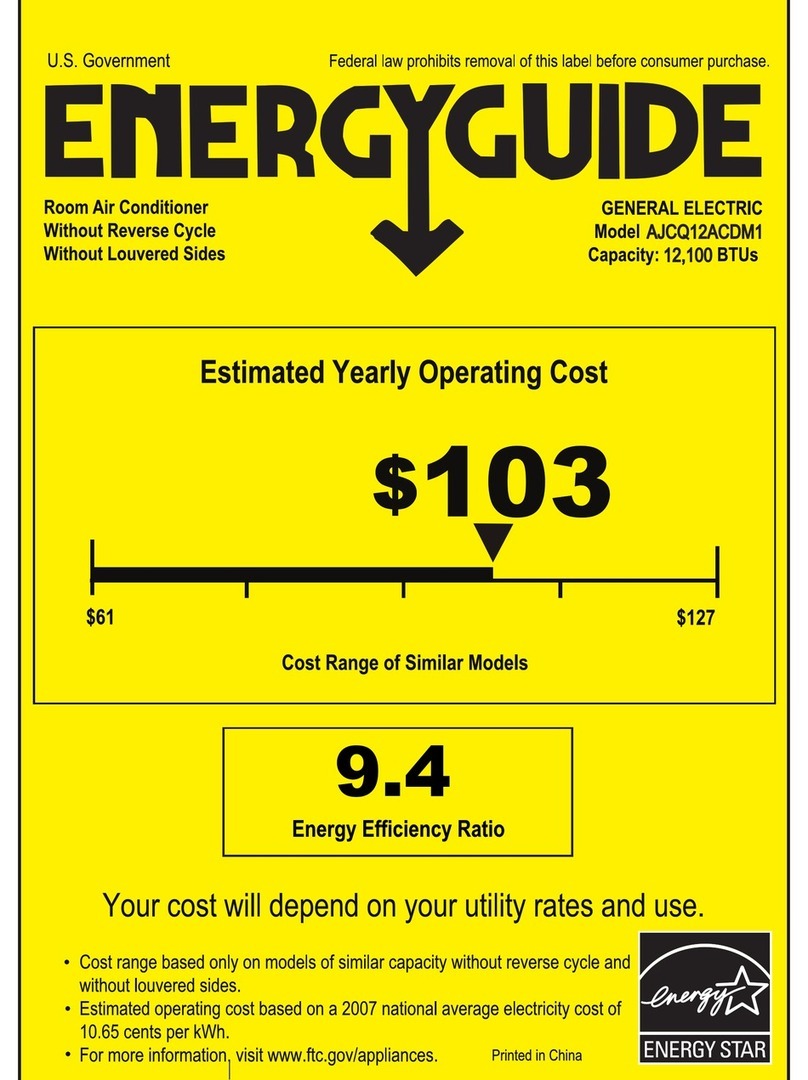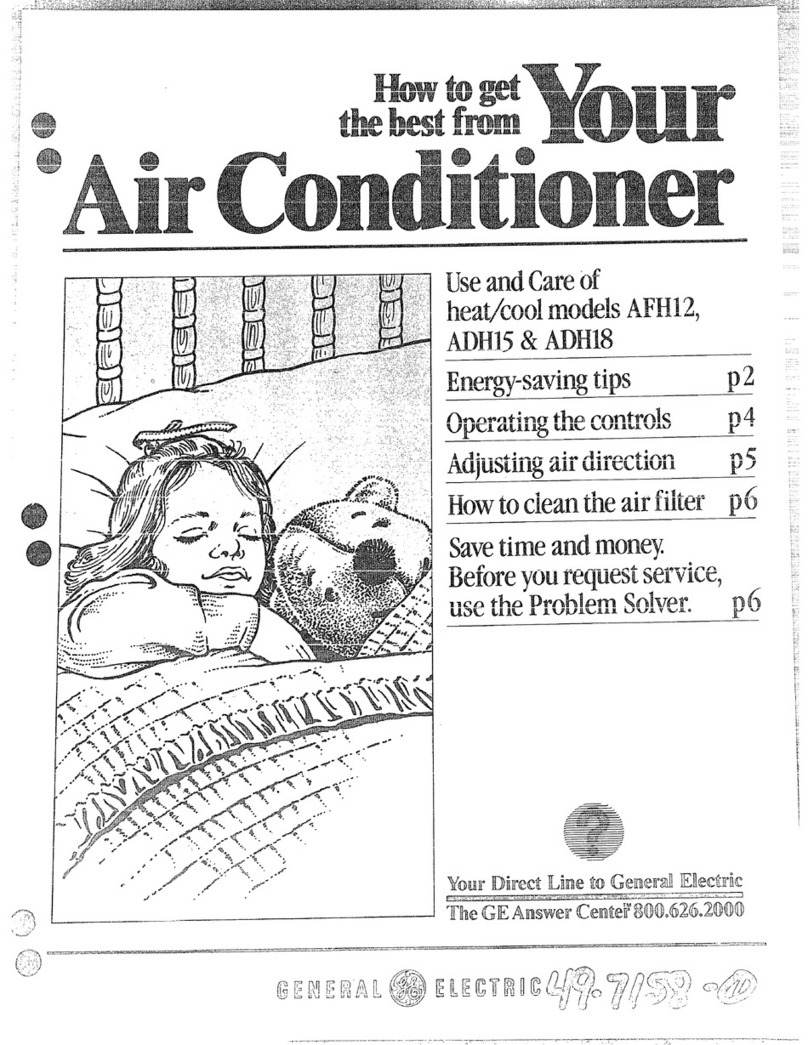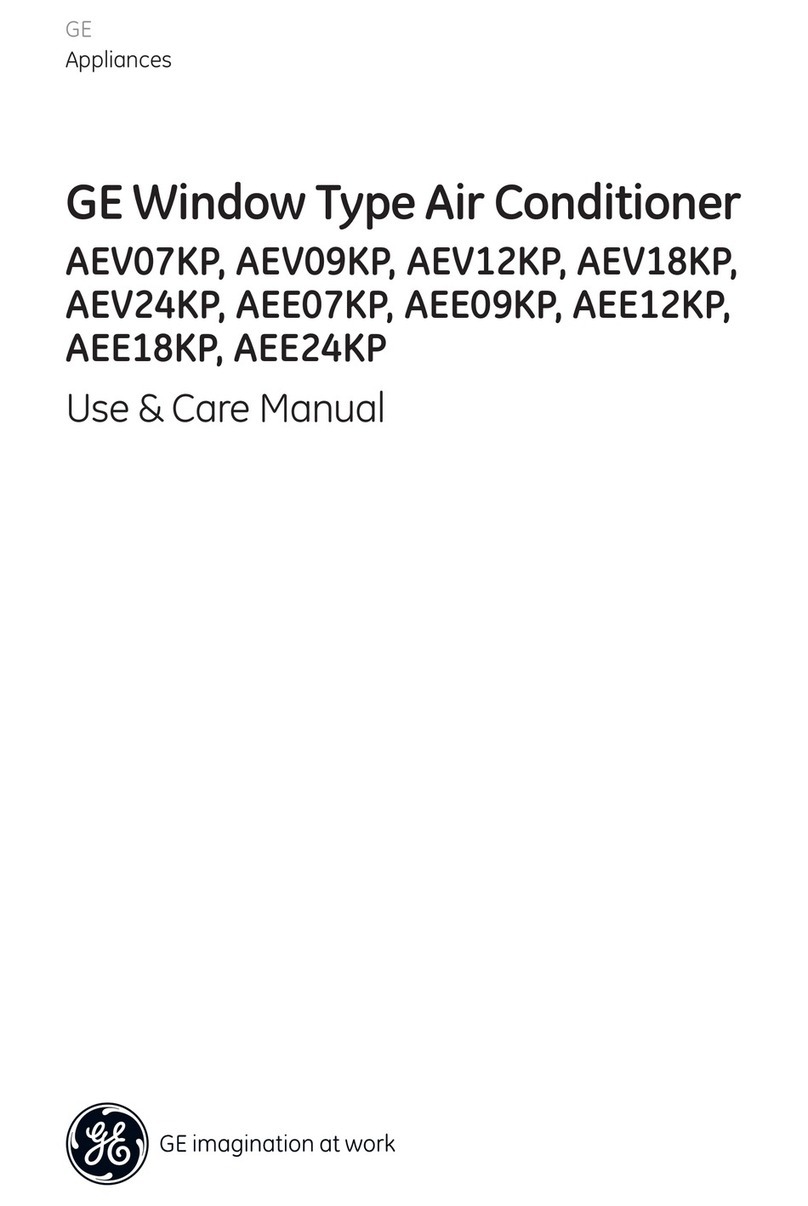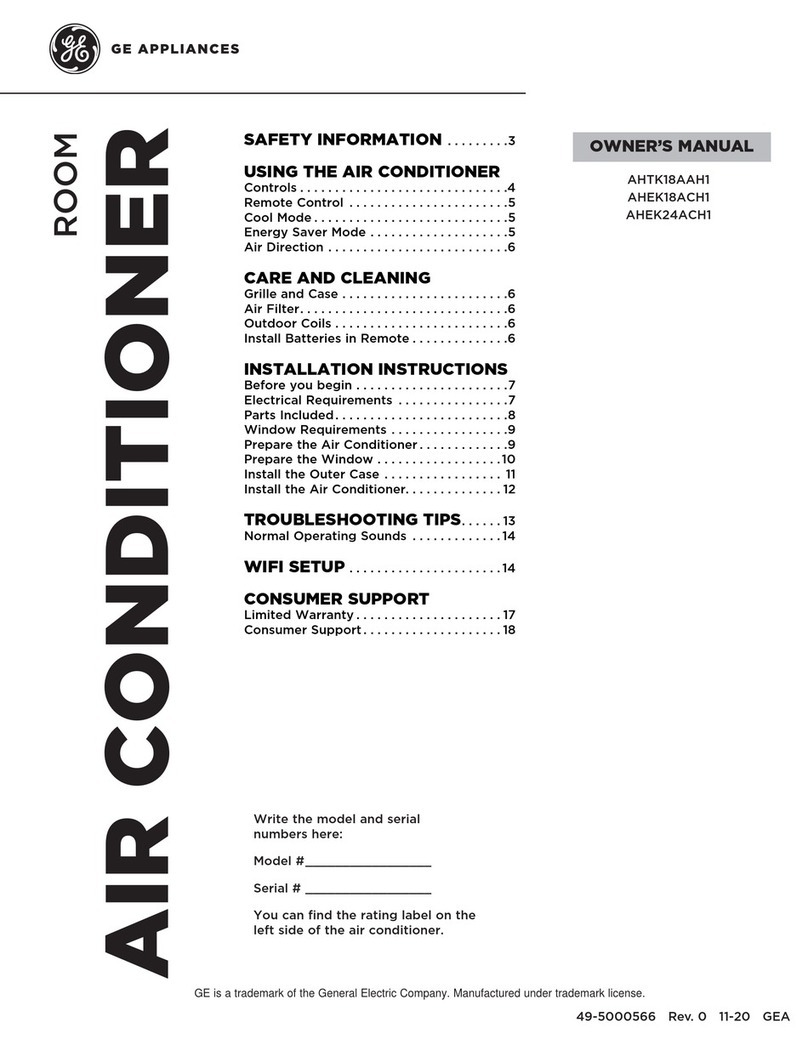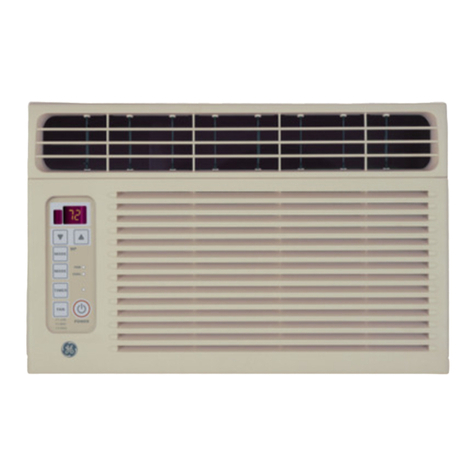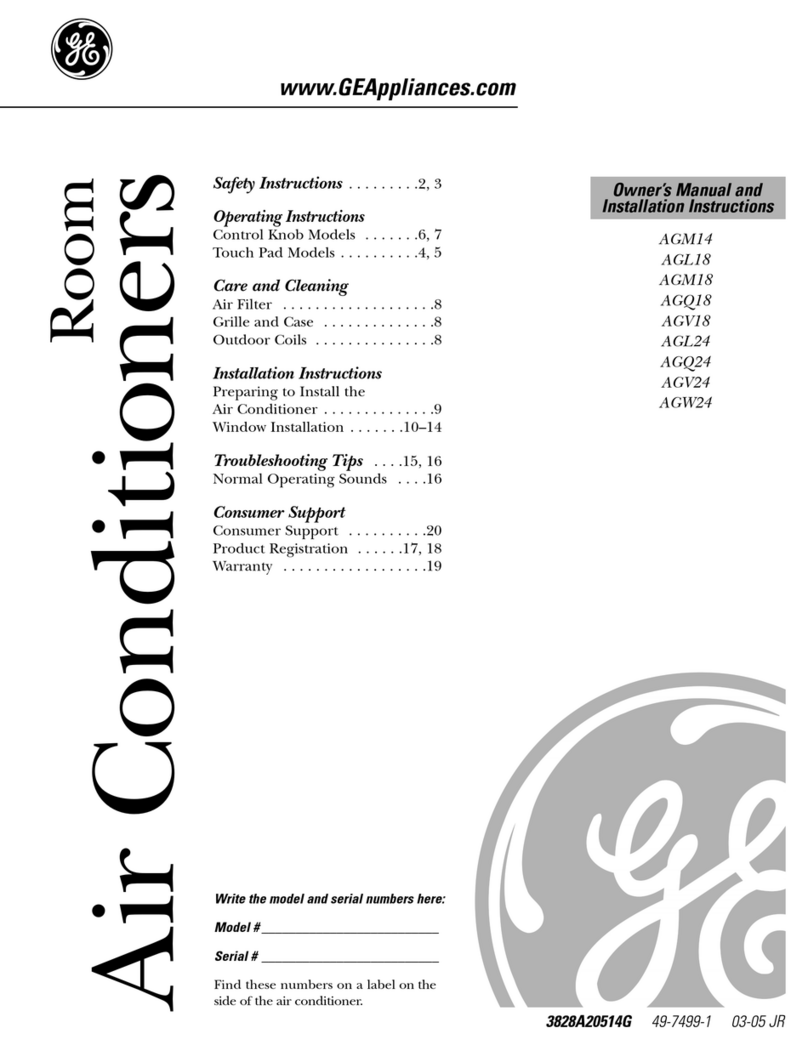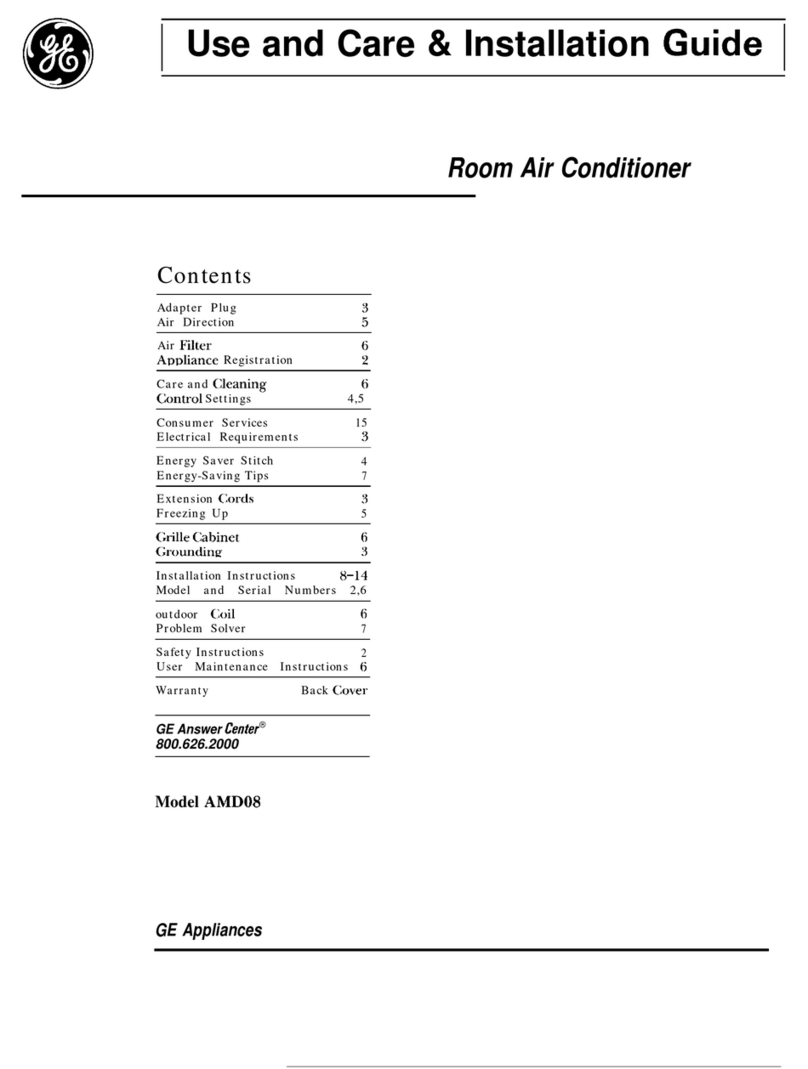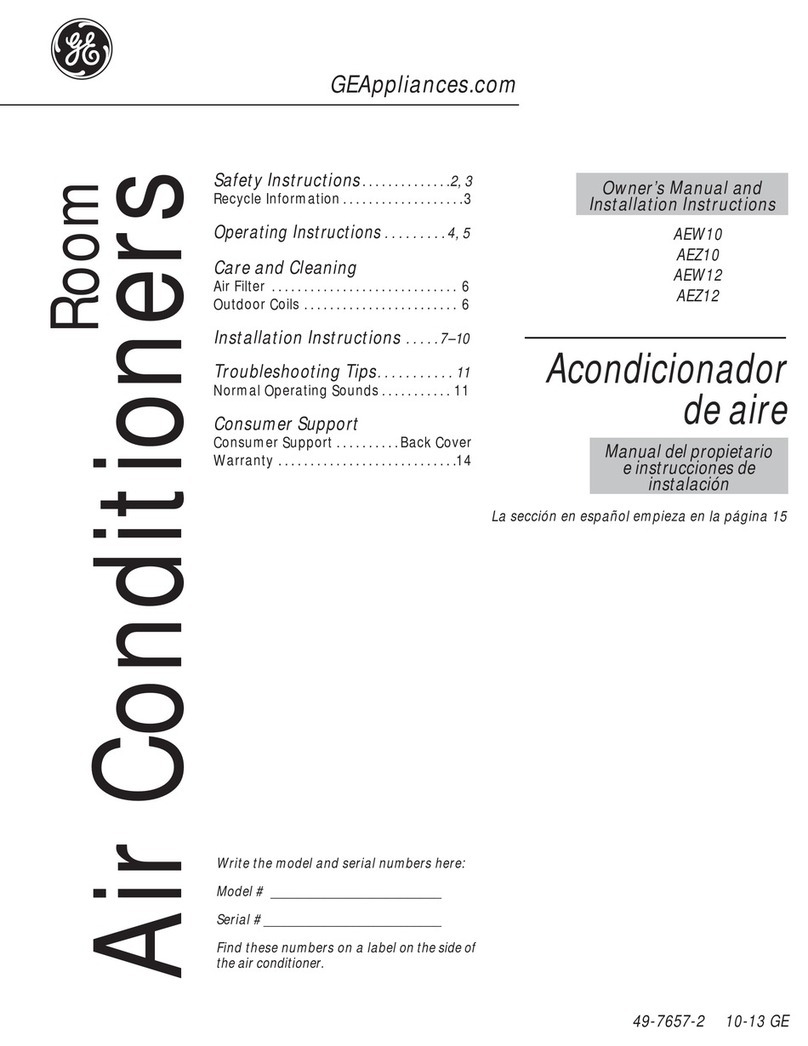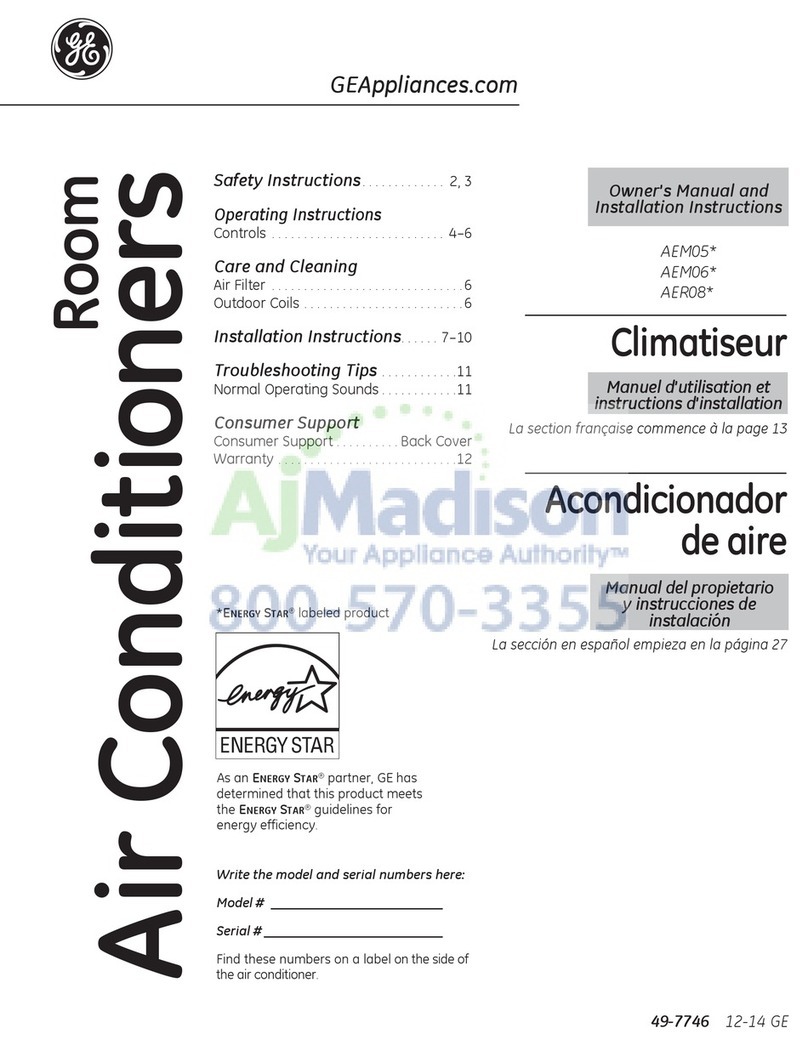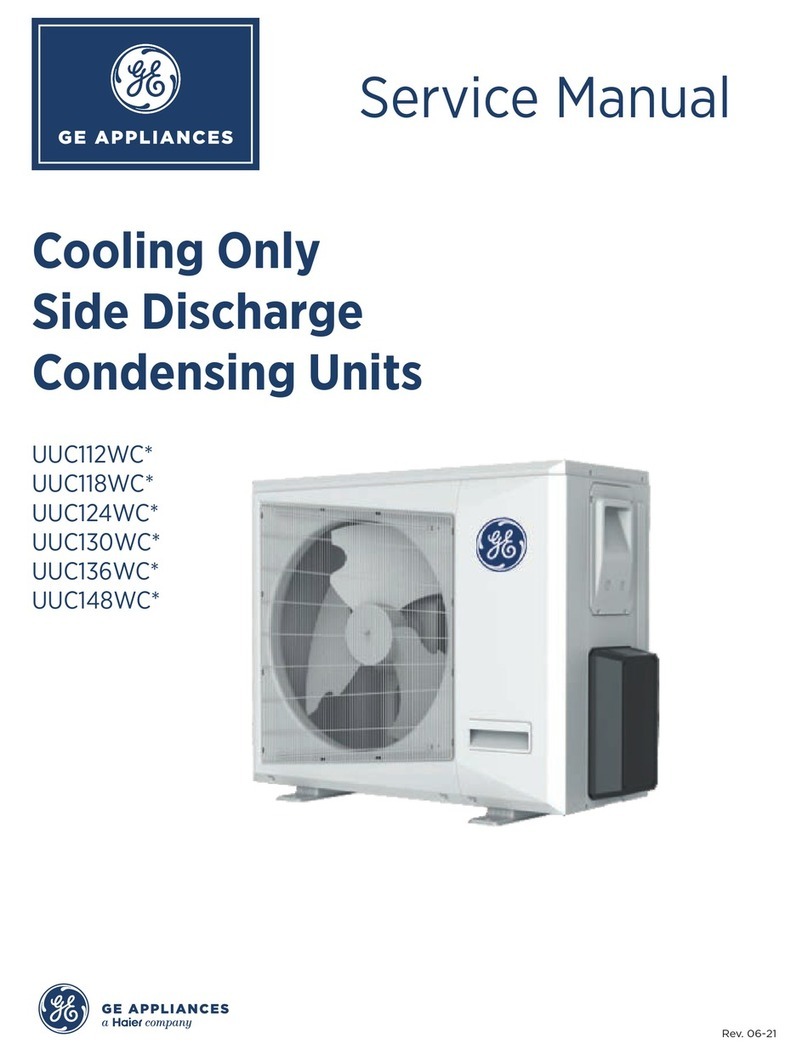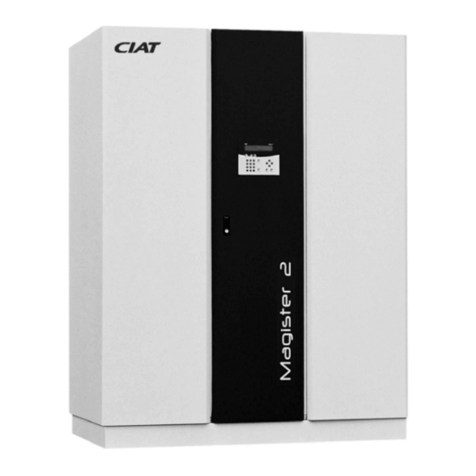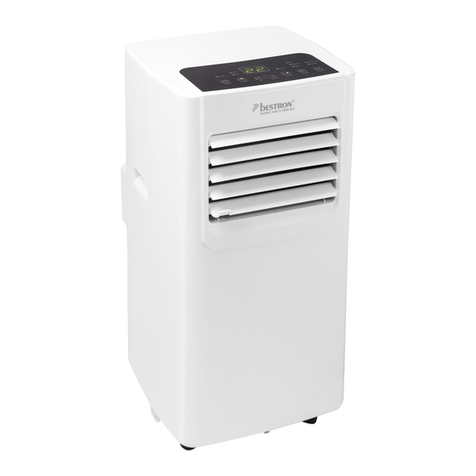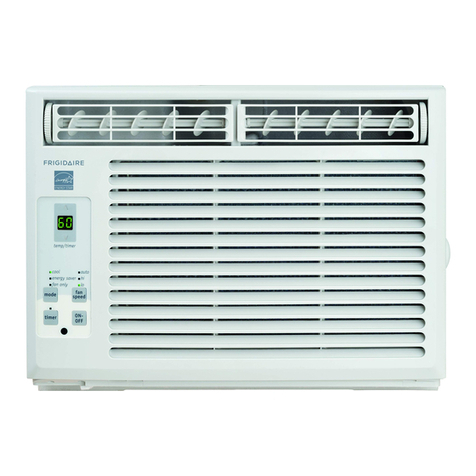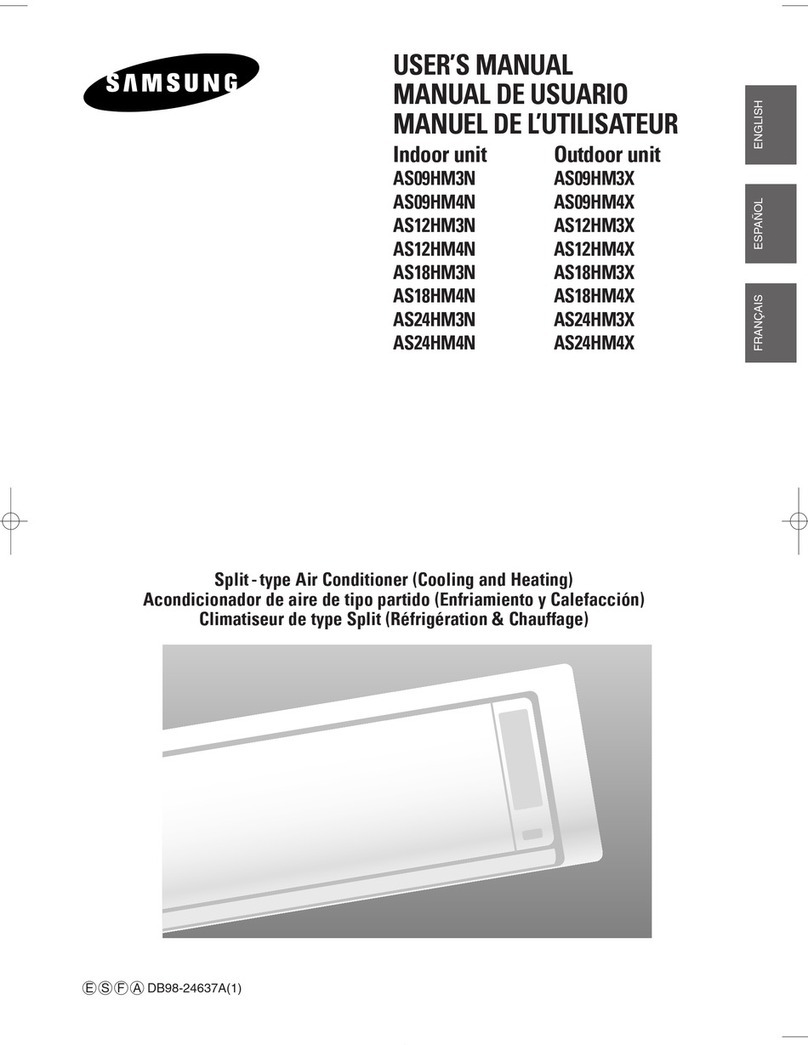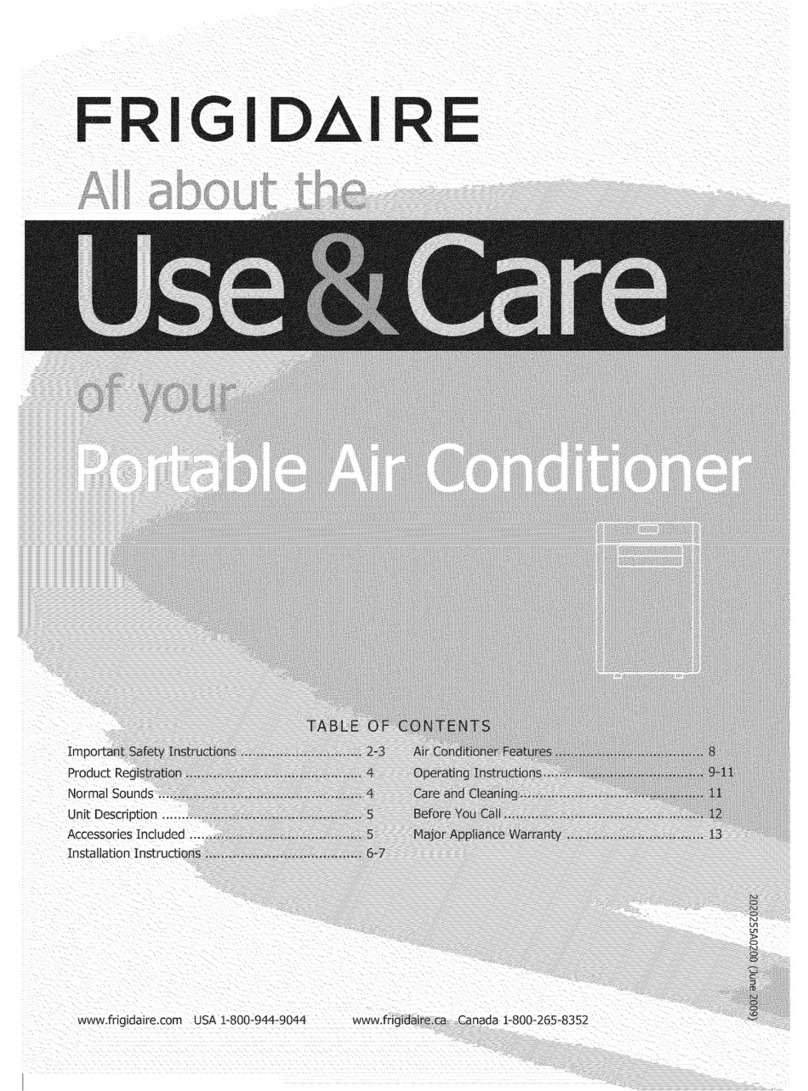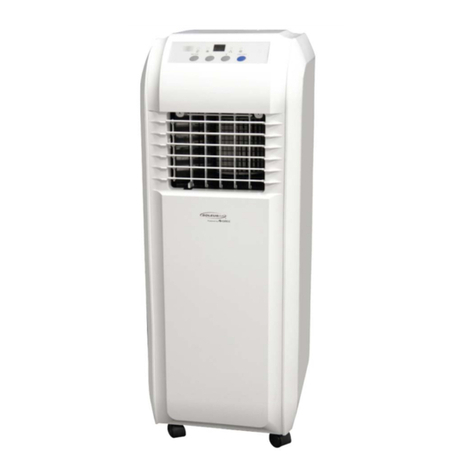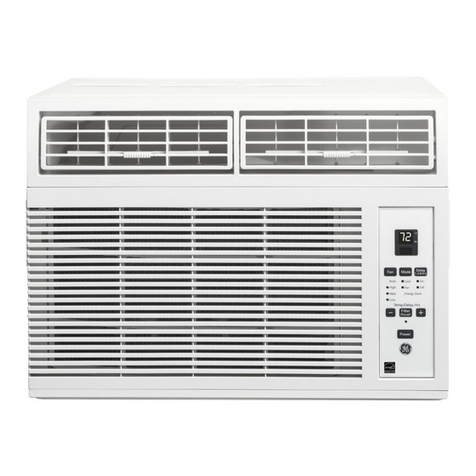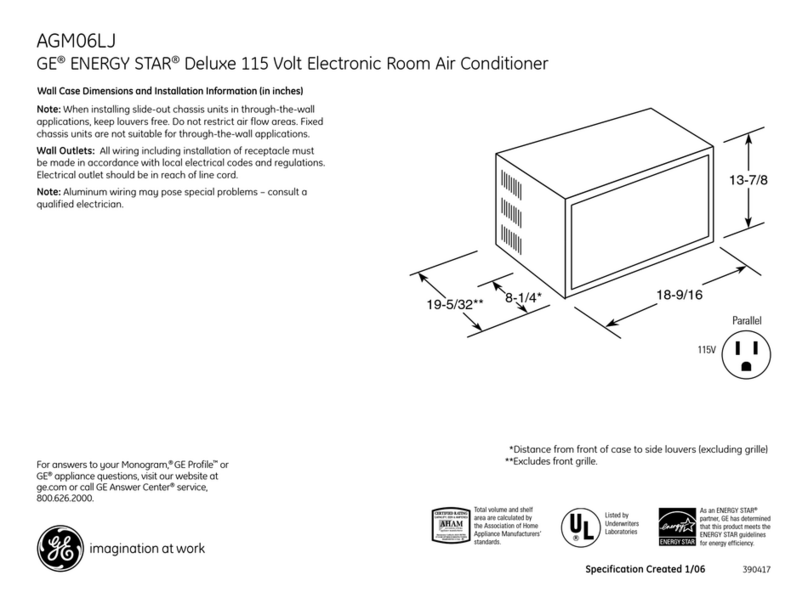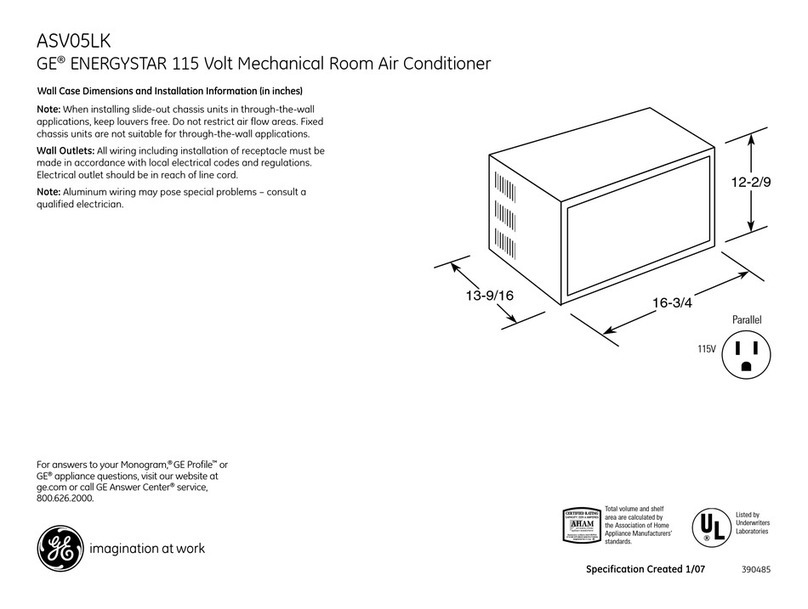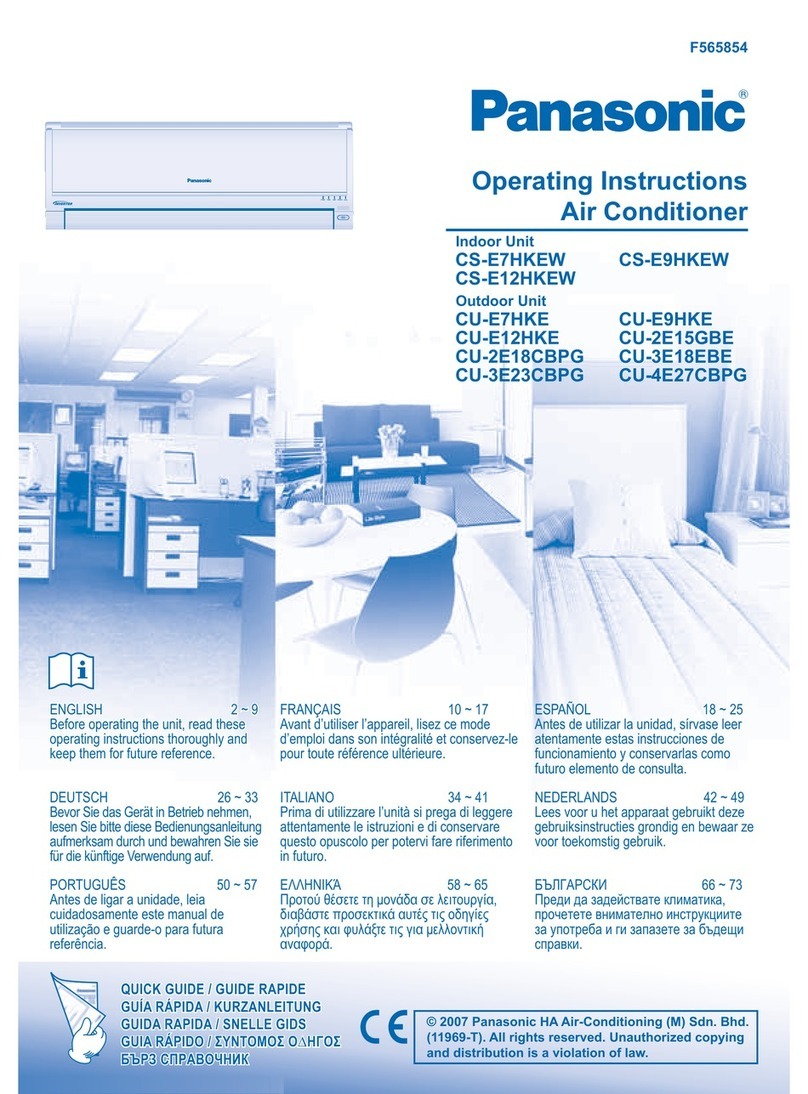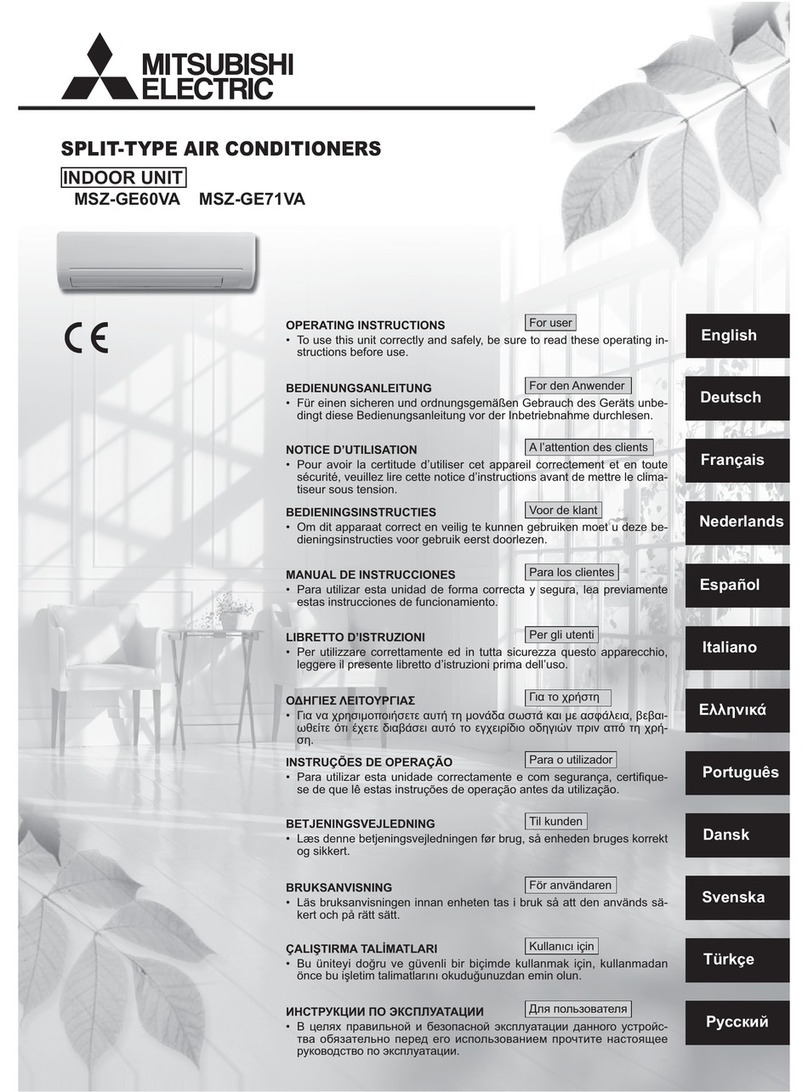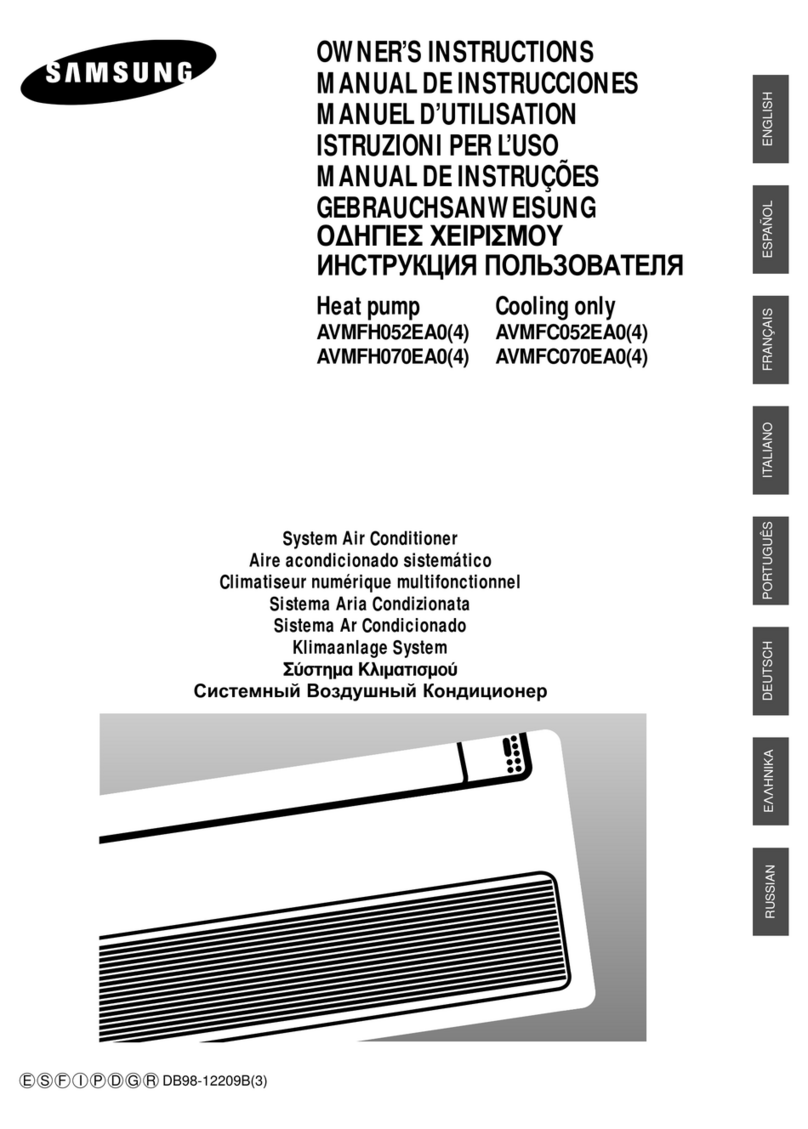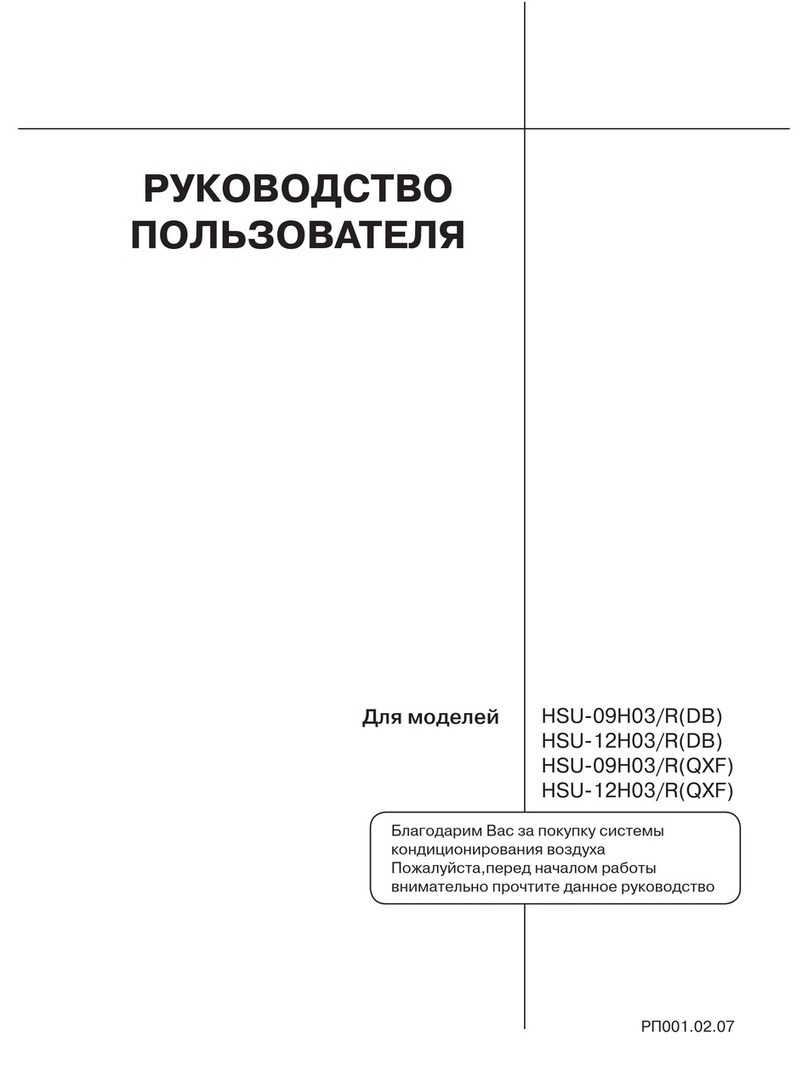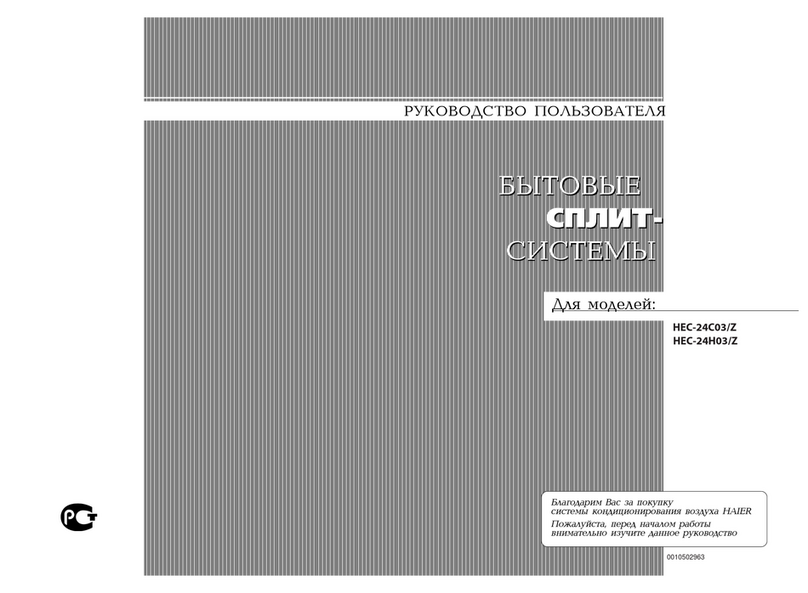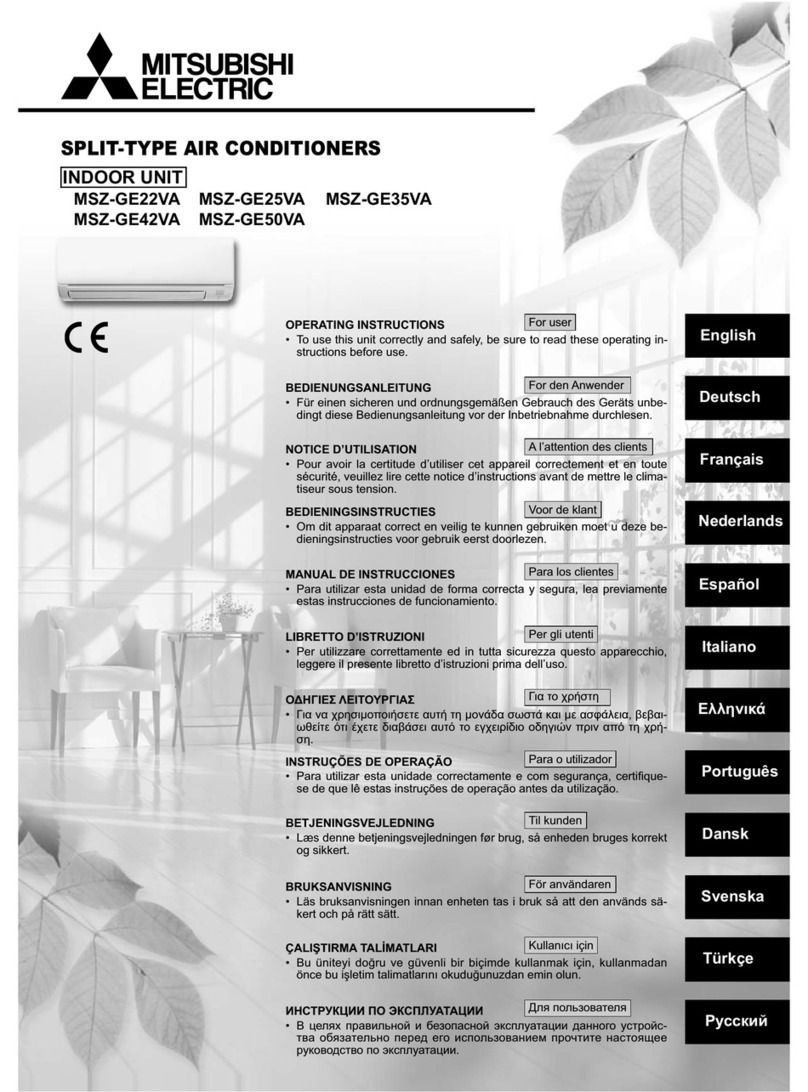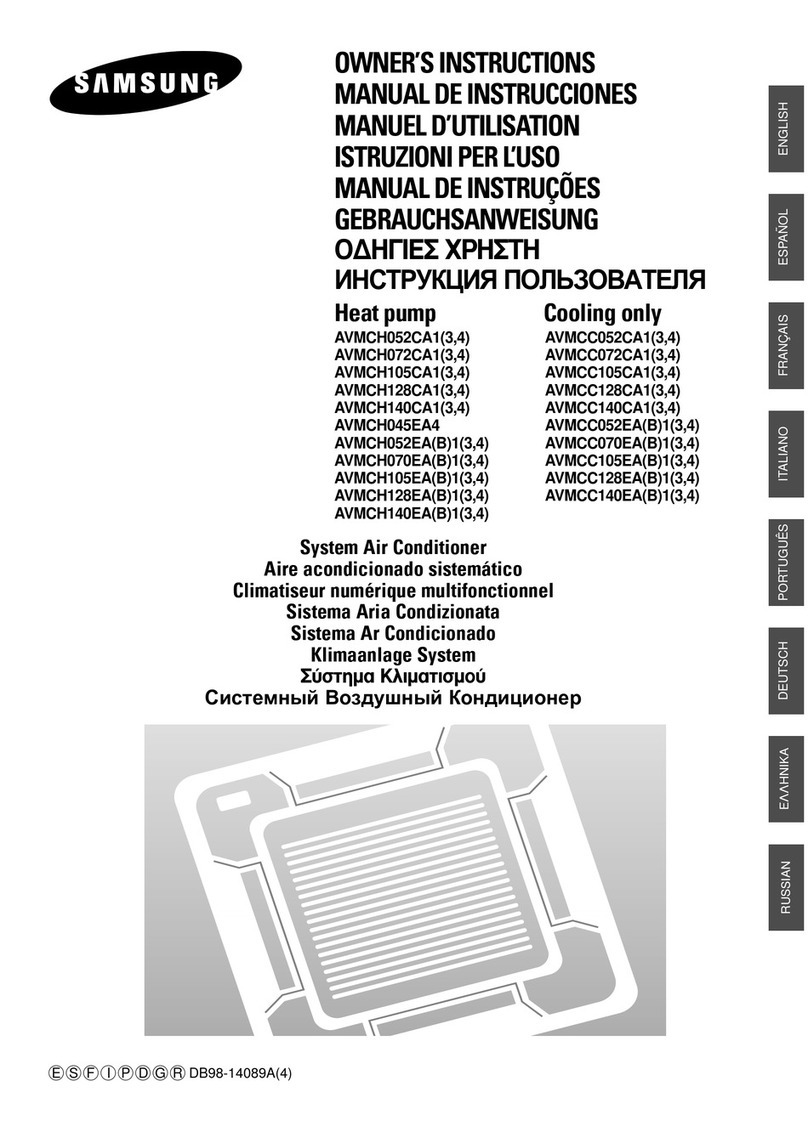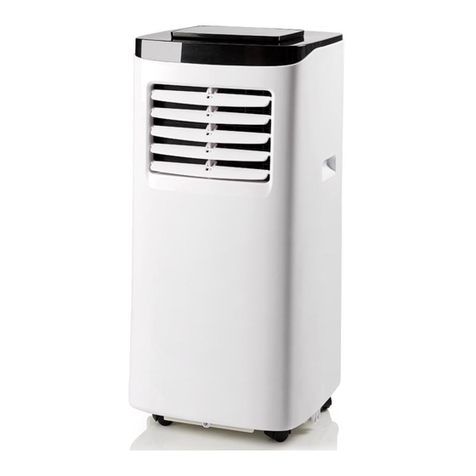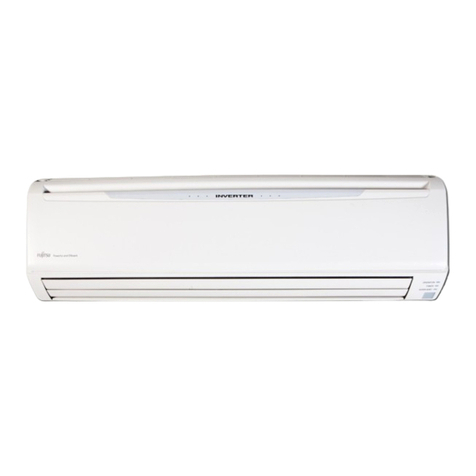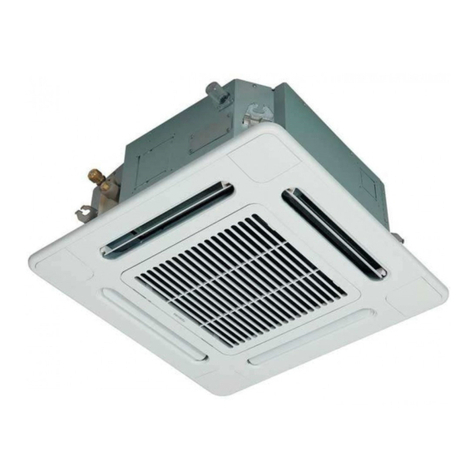Electrical
Safety—MPORTANT...pleaSe
Read
Carefully.
How to connect
electricity
For personal safety,
this appliance must be
properly grounded.
Electrical requirements
115-volt models require a
115/120-
volt
a.c.,
60
hz
grounded outlet
protected with a
IS
amp time delay
fuse
or circuit breaker.
The
power cord on these models has
a three-prong (grounding) plug that
mates with a standard three-prong
(grounding) wall outlet (Fig. 1) to
minimize the possibility
of
electric
shock hazard from these appliances.
PREFERRED ,
METHOD
n
QQ
+’
<,
INSURE PROPER
Fig. 1
GROUNDEXISTS
BEFORE USE
Where a standard two-prong wall
outlet is encountered, it is your
personal responsibility and
obligation to have it replaced with
a properly grounded three-prong
wall outlet.
DO NOT, UNDER ANY
CIRCUMSTANCES, CUT
OR REMOVE THE THIRD
(GROUND) PRONG FROM
THE POWER CORD.
230/208-volt models
require their
own single branch circuit supplying
230/208-volt
a.c.,
protected with a
time delay fuse or circuit breaker.
This is recommended
for
best
performance and to prevent
overloading house wiring circuits,
which could cause a possible fire
hazard from overheating wires.
that mates respectively with a
230/208-volt perpendicular,
tandem or large tandem type wall
outlet. These types of outlets are
available at most hardware stores.
230/208-VOLT
MATCHING
>ERpENDlcu~R
~pE
WALL
OUTLET
LINE CORD PLUG
REQUIRES 20 AMP TIME DELAY FUSE
OR CIRCUIT BREAKER PROTECTION
.
.
.
.
230/208-VOLT
MATCHING
TANDEM TYPE
WALL OUTLET
LINE CORD PLUG
REQUIRES 15 AMP TIME DELAY FUSE
OR CIRCUIT BREAKER PROTECTION
230/208-VOLT
MATCHING
LARGE TANDEM TYPE WALL OUTLET
LINE CORD PLUG
REQUIRES 30 AMP TIME DELAY FUSE
OR CIRCUIT BREAKER PROTECTION
Whether your air conditioner is
a 115-volt or a 230/208-volt unit,
it is important to have the wall
outlet and circuit checked by a
qualified electrician if there is
any doubt as to whether a
proper ground exists.
Use of adapter plug
(115-volt models only)
r
Because of potential safety hazards
under certain conditions, we
strongly recommend against use
of an adapter plug. However, if
you still elect to use an adapter,
where local codes permit, a
TEMPORARY CONNECTION
I
TEMPORARY METHOD
(ADAPTER PLUGS NOT
PERMITTED IN CANADA
ALIGN LARGE
PRONGS/SLOTS
Fig. 2
BEFORE USE
&
1
The larger slot in the adapter must
w
be aligned with the
larger
slot in
~
the wall outlet to
prov;de
proper
polarity in the connection of the
power cord.
CAUTION: Attaching the
adapter ground terminal to wall
outlet cover screw does not ground
the appliance unless cover screw
is metal, and not insulated, and
wall outlet is grounded through
house wiring. You should have the
circuit checked by a qualified
electrician to make sure the outlet
is properly grounded.
When disconnecting the power
cord from the adapter, always
hold the adapter with one hand.
If this is not done, the adapter
ground terminal is very likely to
break with repeated use.
Should the adapter ground
terminal break, DO NOT USE
the appliance until a proper
ground has again been established.
Use of extension cords
Because of potential safety hazards
under certain conditions, we
strongly recommend against the
use of an extension cord.
However, if you still elect to use
an extension cord, it is absolutely
necessary that it be a
UL
listed
,.
The power cord on these models
may be made to a properly grounded
has a 230/208-volt perpendicular,
two-prong wall outlet by use of a
tandem
or
large
tandem type plug
UL
listed
adapter
(Fig,
2) available
at most local hardware stores.
3-wire grounding type appliance
extension cord and that the current
carrying rating of the cord in amperes
be equal to or greater than the
branch circuit size shown on the
rating nameplate of the appliance.
